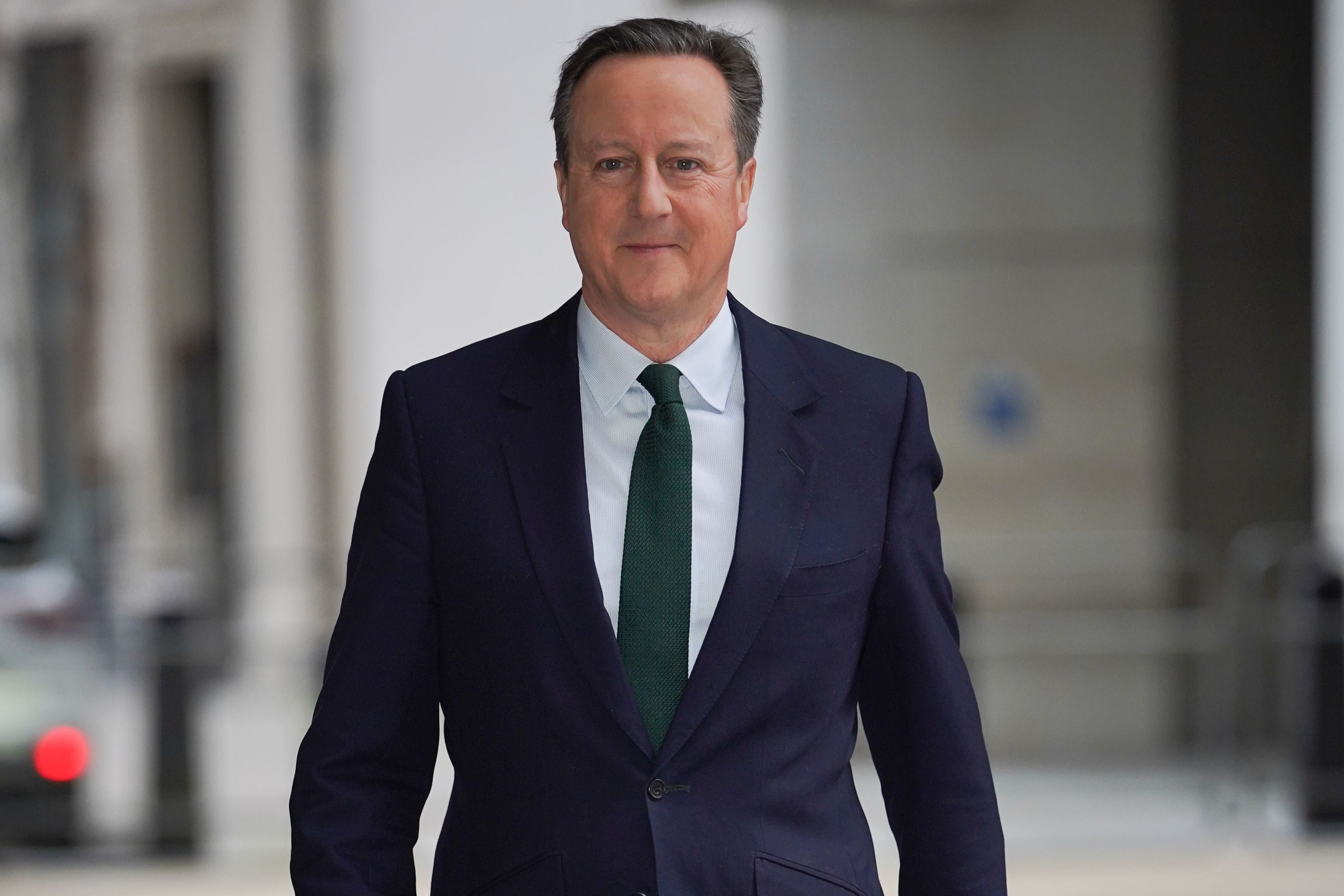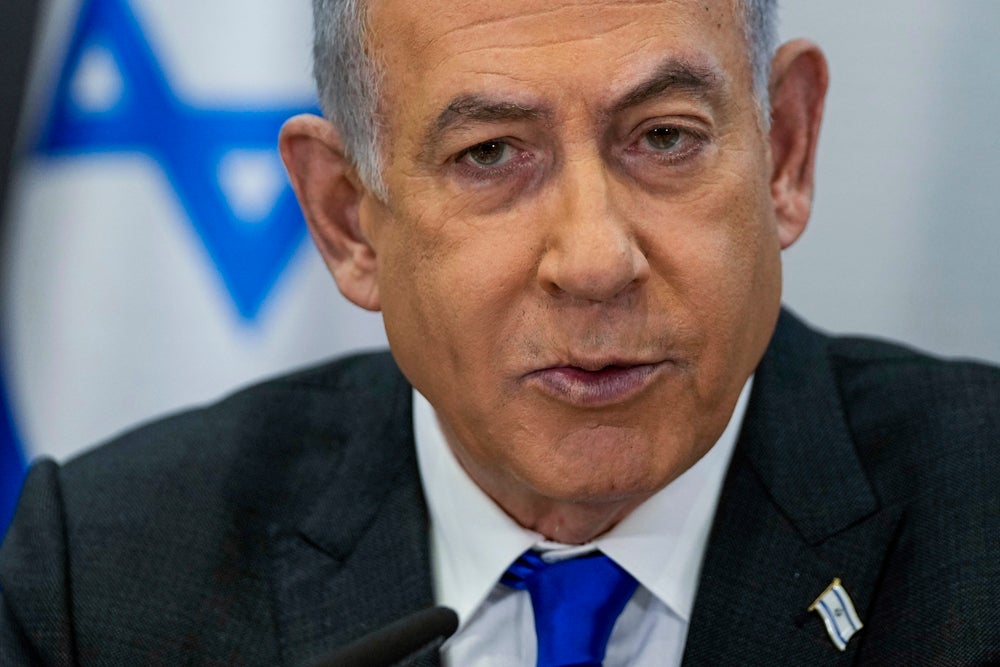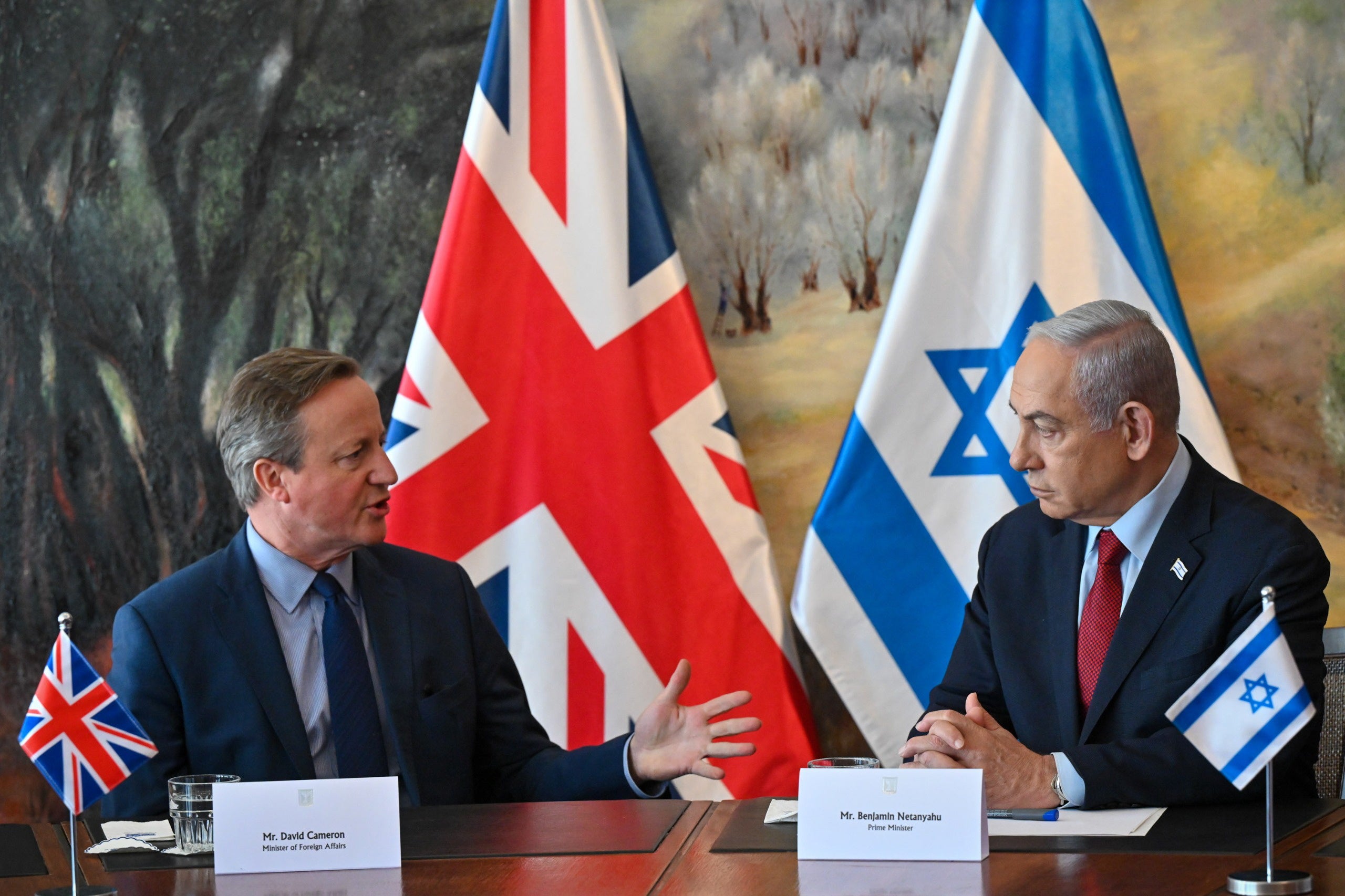Tory backlash after Cameron calls for Palestinian state to end Gaza conflict
Foreign secretary suggests bringing forward formal UK recognition of Palestine to help make two-state solution ‘irreversible’ process
Your support helps us to tell the story
From reproductive rights to climate change to Big Tech, The Independent is on the ground when the story is developing. Whether it's investigating the financials of Elon Musk's pro-Trump PAC or producing our latest documentary, 'The A Word', which shines a light on the American women fighting for reproductive rights, we know how important it is to parse out the facts from the messaging.
At such a critical moment in US history, we need reporters on the ground. Your donation allows us to keep sending journalists to speak to both sides of the story.
The Independent is trusted by Americans across the entire political spectrum. And unlike many other quality news outlets, we choose not to lock Americans out of our reporting and analysis with paywalls. We believe quality journalism should be available to everyone, paid for by those who can afford it.
Your support makes all the difference.Foreign secretary David Cameron has sparked a backlash from Tory MPs after he suggested Britain could bring forward formal UK recognition of a Palestinian state.
The former PM has said such a move could help to make a two-state solution – currently stalled, with Israeli PM Benjamin Netanyahu firmly opposed – an “irreversible” process.
Lord Cameron – speaking ahead of his latest visit to the Middle East – spelt out how the UK and its allies could add to pressure on Israel by considering recognising a Palestinian state at the United Nations.
Palestinian ambassador to the UK Husam Zomlot pounced on his words as “significant” – but some senior Conservatives warned Rishi Sunak’s foreign secretary not to push too far or too fast.
Ex-Tory cabinet minister Theresa Villiers said bringing forward the recognition of a Palestinian state would “reward Hamas’ atrocities” after the 7 October terror attack.
Fellow senior Tory Sir Michael Ellis said the move could risk equipping “dangerous actors” with the “trimmings and capabilities of a state”.
But top Conservative MPs appear split on the issue. Senior Tory MP Bob Seely – a member of the foreign affairs select committee – told The Independent that he welcomed Lord Cameron’s “constructive” idea.

“I think it’s an attractive idea,” said Mr Seely. “I think recognising the state of Palestine sooner rather than later may give the process some important momentum.”
Senior Tory MP Alicia Kearns, the head of the foreign affairs committee, also welcomed Lord Cameron’s remarks – saying it marked “a fundamental change in the UK position”.
She told LBC: “It’s a very welcome one from my perspective. But what I need to tease out of the government over the next few days is, is this a posturing position to show Israel that unless they reform their behaviours … that there are tools that we have available to us? Or is it a genuine commitment towards a Palestinian state? Which is where we should be going.”
Lord Cameron told a London reception there was a need to give the Palestinian people “a political horizon” to end the Israeli-Hamas war as he addressed a reception for Arab ambassadors in parliament.
The foreign secretary suggested that Britain and others could formally recognise a Palestinian state during peace negotiations – rather than wait for a final peace deal with Israel.
“We should be starting to set out what a Palestinian state would look like – what it would comprise, how it would work,” he said on Monday night.
“As that happens, we, with allies, will look at the issue of recognising a Palestinian state, including at the United Nations. This could be one of the things that helps to make this process irreversible,” Lord Cameron said.

The foreign secretary last week pushed Mr Netanyahu to re-consider talks aimed at a two-state solution. But Mr Netanyahu has rebuffed the push from Western allies, including the US – saying the plan would “endanger the state of Israel”. The Israeli PM also criticised what he described as an “attempt to coerce us”.
On Tuesday Mr Netanyahu ruled out an Israeli withdrawal from Gaza or the release of thousands of militants – both key Hamas demands in ongoing ceasefire talks. The Israeli leader once again vowed that the war would not end without “absolute victory” over Hamas.
Both No 10 and junior Foreign Office minister Andrew Mitchell responded to Lord Cameron’s remarks on Tuesday by insisting that there has been “no change” in UK policy. Mr Sunak’s spokesperson said recognition of a Palestinian state will take place “at a time it best serves the cause of peace”.
However, Labour welcomed Lord Cameron’s suggestion. Shadow foreign secretary David Lammy told MPs: “As Keir Starmer has said, statehood is not the gift of a neighbour – it is the inalienable right of the Palestinian people.”
Mr Lammy added: “I welcome the foreign secretary adopting this position and rejecting the notion that recognition can only follow the conclusion of negotiations.”
But Tory MPs shared their concerns in the Commons. Ms Villiers said it was “really disturbing” that Lord Cameron appeared to have “changed the UK government’s approach”.
“Will the minister agree with me that bringing forward and accelerating unilateral recognition of Palestinian state would be to reward Hamas’ atrocities?” she asked.
Mr Mitchell replied: “There is no question of rewarding Hamas for the appalling acts they perpetrated in a pogrom on October 7.”
“But the point the foreign secretary has been making is that we must give the people of the West Bank and Gaza a credible route to a Palestine state and a new future, but we must do so when the time is right.”
Sir Michael warned that “unilateral recognition of Palestinian state now” risked “equipping those dangerous actors … with the trimmings and capabilities of a state”.
Tory MP Greg Smith also appeared to question Lord Cameron’s remarks – saying “The grim reality is that Hamas does not seek a ceasefire and Israel cannot be reasonably expected to pursue one with a group that actively seeks its destruction.”
And Stephen Crabb, another ex-cabinet minister, said Lord Cameron’s gesture was “noble” but questioned what “talk about early recognition” of Palestinian statehood would really achieve in the months ahead.

The Palestinian ambassador to the UK described Lord Cameron’s words as a “significant” moment – and even referred to “the Cameron declaration” in a social media statement.
Mr Zomlot said: “It is the first time a UK foreign secretary considers recognising the state of Palestine, bilaterally and in the UN, as a contribution to a peaceful solution rather than an outcome.”
Lord Cameron, who began his latest trip to the region with talks in Oman, said Britain will do “everything it can” to prevent the conflict from “spilling over borders”. The foreign secretary met Omani counterpart Sayyid Badr Al-busaidi to discuss tensions across the region.
An attack by Iran-backed militia in Jordan over the weekend that killed three US troops and left dozens injured has stoked fresh fears of a Western confrontation with Tehran.
Joe Biden said on Tuesday that he had decided how the US would respond to the deadly drone strike. An Iran-backed militia group called the Islamic Resistance in Iraq has claimed responsibility.
But the US president would not say who any retaliation would be aimed at. Asked if he blamed Iran, Mr Biden said: “I do hold them [Iran] responsible in the sense that they’re supplying the weapons to the people who did it,” he said. The US president added: “I don’t think we need a wider war in the Middle East.”
Subscribe to Independent Premium to bookmark this article
Want to bookmark your favourite articles and stories to read or reference later? Start your Independent Premium subscription today.

Join our commenting forum
Join thought-provoking conversations, follow other Independent readers and see their replies
Comments